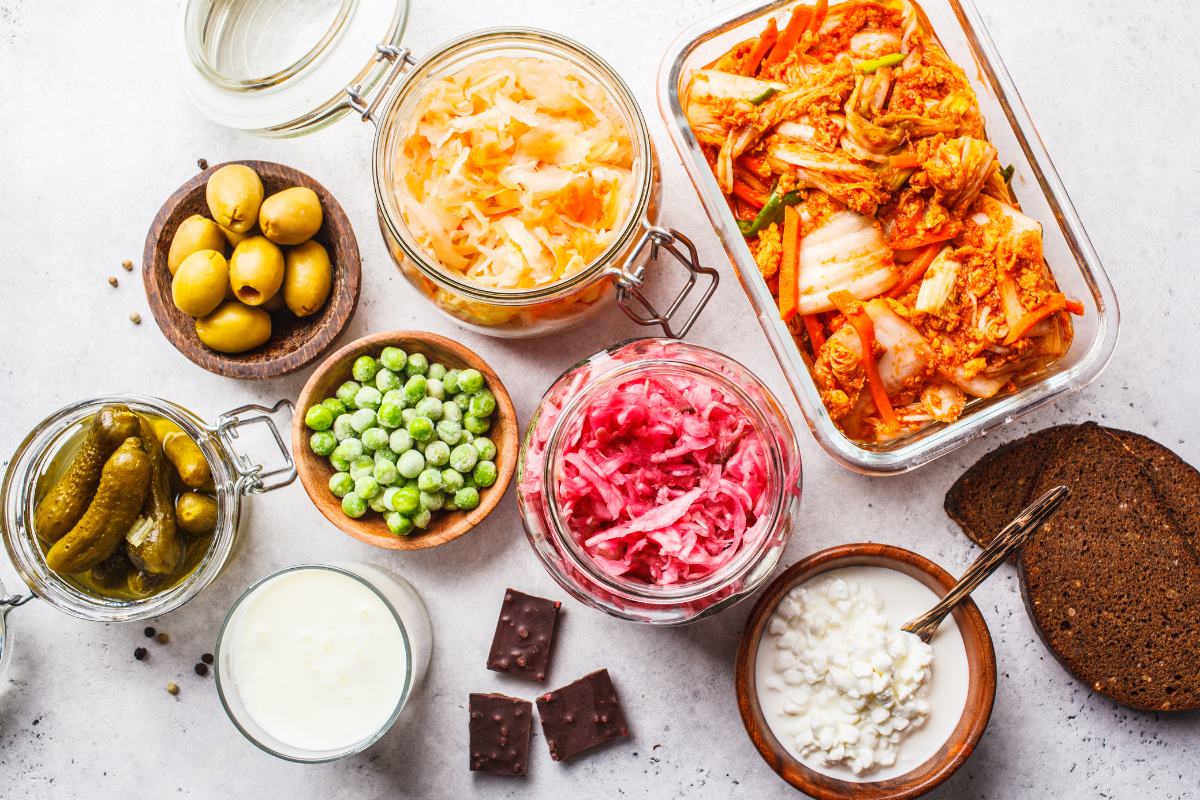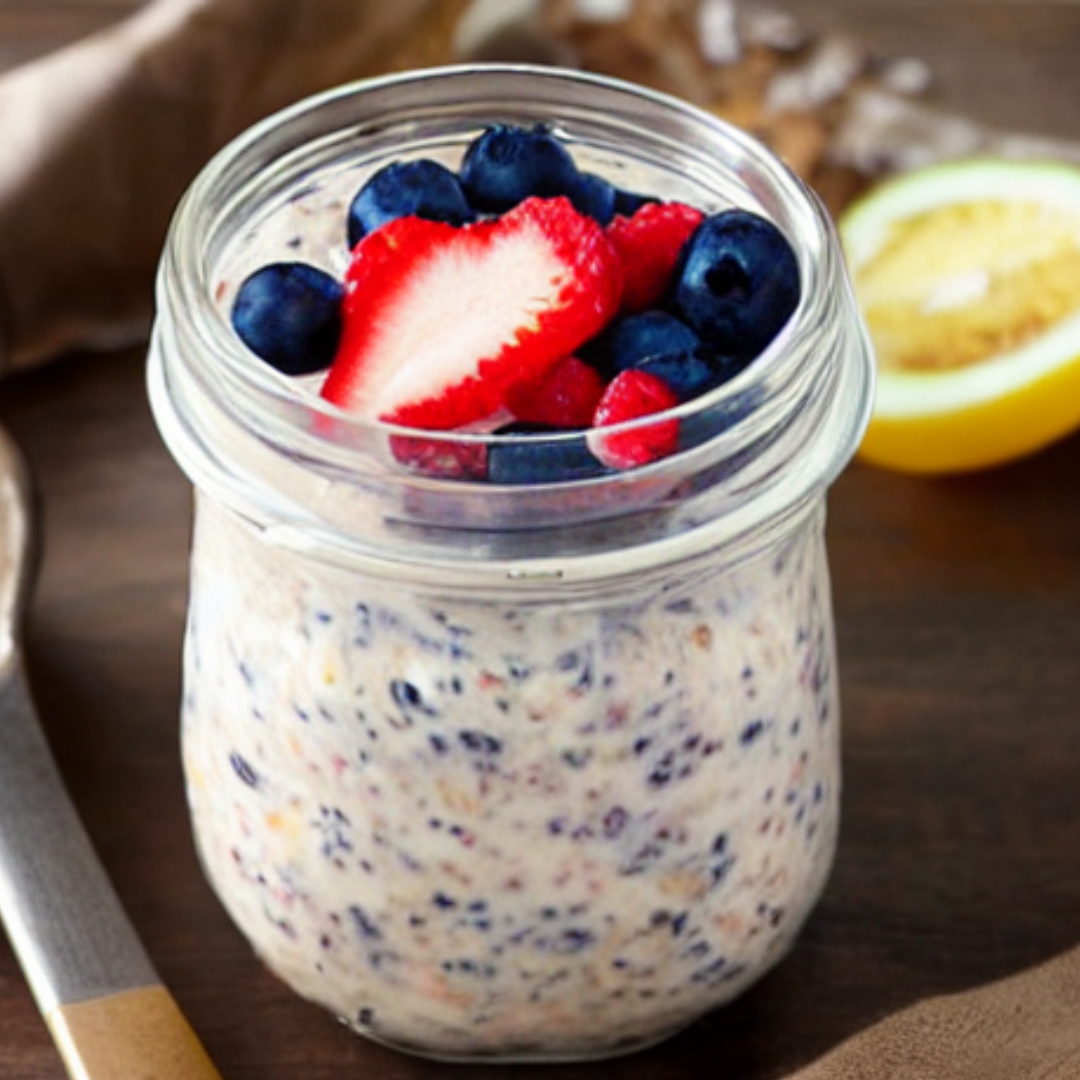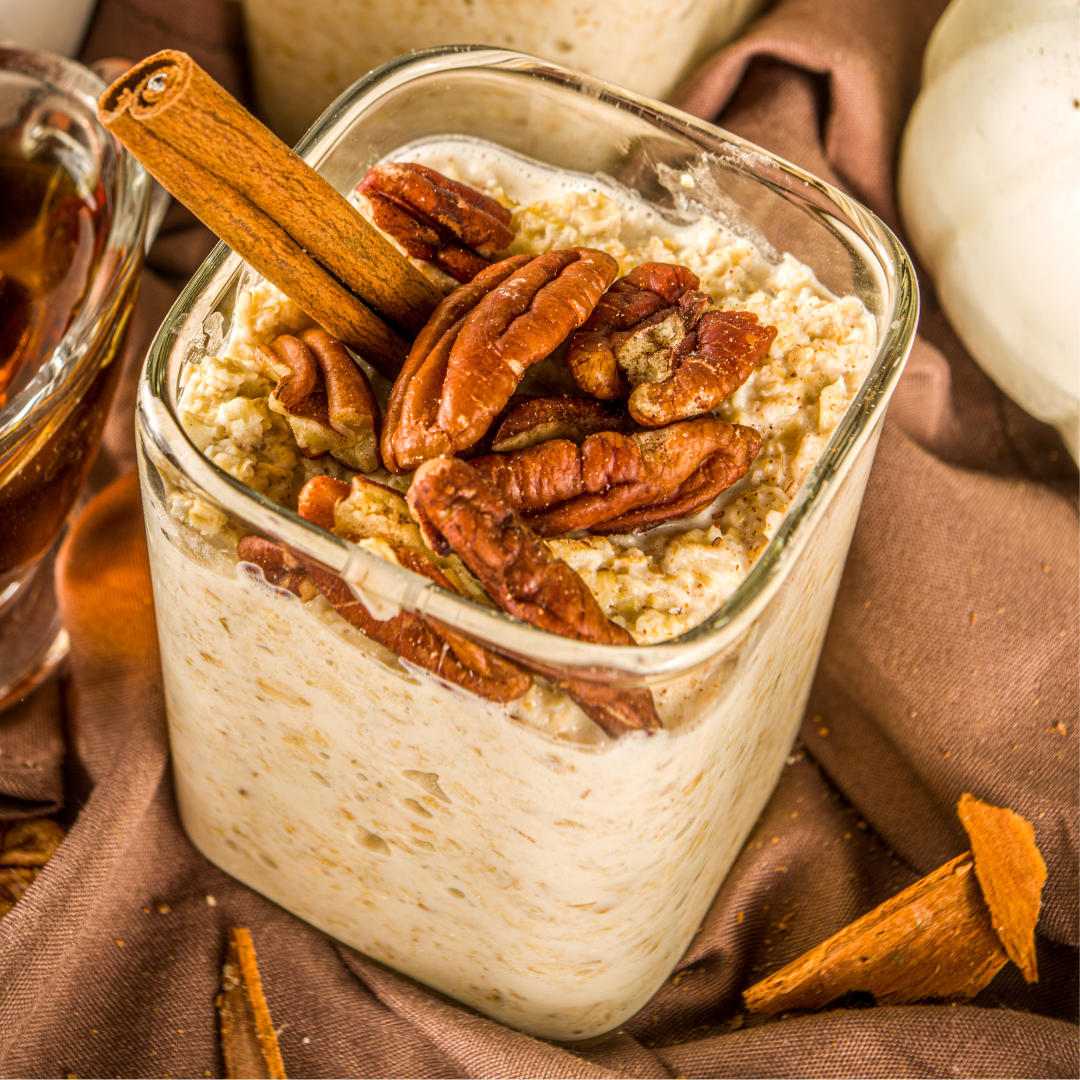Published: March 25, 2024
Nurturing Your Gut: Prebiotics and Probiotics for Digestive Health
By: Marilyn Mills, MS, RD, LD, CDCES at The Elliot Center for Advanced Nutrition Therapy
The gut acts as a command center for human health, not just for our immune system but for our metabolism, hormone balance, and mental function as well.
When patients ask about gut health, the two most common questions are:
1. What foods should I eat more of to care for my gut?
2. Should I be taking a probiotic every day?
To best answer these questions, let’s review a few gut health basics.
Gut Health Basics
Every day, we carry about four to six pounds of bacteria in our gut. These trillions of bacteria, both beneficial and harmful, make up our “gut microbiome.” They can work together, or there can be an imbalance. An overgrowth of harmful bacteria may cause distress such as gas, bloat, and irregularity, but it also weakens the immune response to colds and viruses, inflammatory bowel diseases like Crohn’s, and impacts our mental well-being.
To help care for the gut and promote the growth of good bacteria,
• eat more plant-based foods and dietary fiber from whole foods, especially those which are prebiotics.
• eat less sugary and highly processed foods and beverages.
Learn More About Elliot Nutrition Services
Prebiotics and Probiotics
PREbiotics and PRObiotics are often confused.
Prebiotics are non-digestible fibers or compounds that serve as fuel for beneficial bacteria in the gut. Foods that feed good bacteria already in your large intestine include bananas, oats, honey, garlic, onions, asparagus, and inulin (chicory root), often added to nutrition/energy bars.
Probiotics are foods that contain live bacteria and supply additional good bacteria to the gut microbiome. These foods and beverages are often fermented or cultured foods, including kombucha, kimchi, fresh pickles, sauerkraut, yogurt, and kefir. Chia and flaxseed also offer probiotics.

Food is the first choice for consuming both pre and probiotics, but since that is not always possible, your gastroenterologist, primary health care provider, or pharmacist may help you select an over-the-counter probiotic.
You may only need a daily probiotic if you cannot eat certain foods or have a digestive disease such as Crohn’s disease or ulcerative colitis. Probiotics may also be suggested when you take antibiotics, since that often eliminates all good and bad bacteria.
How to Take Prebiotics and Probiotics
Common probiotic strains include lactobacillus and Bifidobacterium species, and acidophillus. Sometimes, the best way is to take prebiotics and probiotics together; it’s a powerful boost to improving your gut microbiome.
Again, food is the ultimate source for consuming prebiotics and probiotics. Good sources include buttermilk and cottage cheese containing live cultures. To be effective, yogurt must contain at least three probiotics. Our local Stonyfield Farms brand usually has six, and kefir contains nine.
When it comes to supplements, some of the most popular probiotic strains on the market contain one strain (single-strain). For instance, Saccharomyces boulardii on its own may be option for IBS-D. We have all heard the phrase, “If some is good, then more must be better.” This is not the case with probiotic formulas, which include 10-35 probiotics (multi-strain). Some probiotic strains are target-specific. So, if you are taking a multi-strain, it may not have enough of the target strain to address the issue. Some strains might cause an imbalance of your gut cultures. If told to take a probiotic, then ask your health care provider for specific strains or a specific product with three to five multi-strains.
Planning your meals can make it easier to get the nutrients you need. Try this simple recipe that you can make in the evening, so it’s already to go in your busy morning.
Overnigh t Oats Base Recipe:
t Oats Base Recipe:
Prep Time: 5 minutes
Total Time: 5 minutes
Servings: 1
• 1/2 cup rolled oats as needed
• 1/2 cup plant-based milk or your favorite milk
• ½ cup regular or Greek yogurt, plain or flavored
• 2 teaspoons chia seeds
Directions
1. Pour milk into a Mason jar or resealable container.
2. Add chia and oats.
3. Spoon layer of yogurt, favorite fruit, nuts or seeds, sweetener, and spices (ginger and cinnamon work well).
4. Cover and refrigerate overnight or at least 4 hours. When ready to eat, stir to mix and eat cold or you can heat it a bit.
You can be endlessly creative with this recipe. Here are two variations:
Banana Walnut Overnight Oats:
• 1/2 ripe banana, mashed or chopped
• 1 teaspoon maple syrup, honey, stevia, or monk fruit sweetener
• 1/2 teaspoon ground cinnamon
• 1/4 teaspoon nutmeg, optional
• 2 Tablespoons walnuts chopped
• banana slices for topping, optional
Carrot Cake Overnight Oats:
• 1 Tablespoon maple syrup, honey, stevia, or monk fruit sweetener
• 1/2 teaspoon ground cinnamon
• 1 Tablespoon carrots, grated, plus more for topping (optional)
• 1/2 Tablespoon shredded coconut, plus more for topping
• 1 teaspoon pecans, chopped
• 1/2 teaspoon raisins, plus more for topping (optional)
Incorporating prebiotics and probiotics into your diet may offer significant health benefits. By nourishing the gut microbiome and supporting digestive balance, these dietary components have the potential to alleviate symptoms, reduce inflammation, and improve overall gut health. However, it's essential to consult with a health care professional before starting any new dietary supplements, especially if you have a pre-existing medical condition. With the right approach, you can nurture your gut and embark on a journey towards better digestive and overall wellness.
To learn more about nutrition and gut health, visit The Elliot Center for Advanced Nutrition Therapy

